#South America 1981
Text


SPOTTED
Security members and professional wranglers, Wally Versen and Wally Gore having a breather at the press conference.

Queen in Argentina, 1981 – photo via Getty
(IDs in alt)
#Wally Versen#(sometimes Darth Vader)#Wally Gore#(Deacon wrangler)#i have a job application to finish but i am procrastinating#can u tell?#getty images is such a time sink for me#queen tour 1981#South America 1981
4 notes
·
View notes
Text
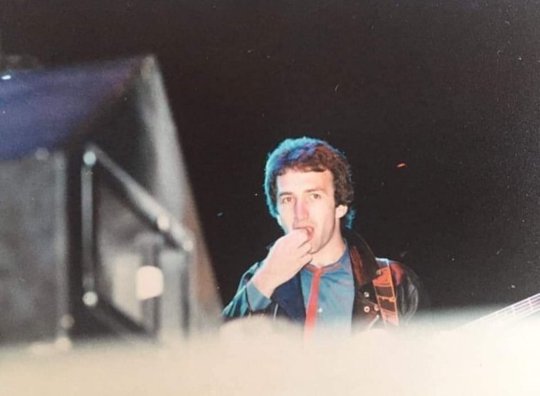
John Deacon in Mar del Plata Argentina, 1981.
#john deacon#queen#queen band#john richard deacon#deaky#deacy#soundcheck#rehearsals#mar del plata#argentina#south america#1981#80s#ms
54 notes
·
View notes
Text
Bo Hi Pak: The CAUSA Movement That Shook the Kremlin
Chapter 16 - The CAUSA Movement That Shook the Kremlin from Bo Hi Pak’s Messiah - My Testimony to Rev. Sun Myung Moon Volume II
As if the Washington Times hadn't already struck terror in the heart of the Kremlin, the international CAUSA movement finished the job. Together, the Times and the CAUSA movement were determined champions of truth that hastened the downfall of international communism.
From 1980 to 1991, CAUSA swept every continent. In this critical span of eleven years, the movement frustrated the ideological offensive of world communism and put it on the defensive. A masterstroke, the movement eventually caused the Soviet Union to completely abandon its world communization strategy. Before I explain what it is, I would like to describe Reverend Moon's basic understanding of and strategy for dealing with communism.
Reverend Moon, as I have mentioned, defines communism as the last worldwide satanic force in human history, the last political and ideological enemy of God. In essence, communism is a pseudo-religion -- militant atheism garbed in a deceptive ideological cloak. Class struggle, the liberation of the world proletariat, the vindication of the have-nots, and the other philosophical and political trappings of communism -- which gain adherents -- are not the core of communism. The hidden purpose within communism was to eliminate God from the face of the earth.
Accordingly, the communists denounced God as an idol created by man and a crutch for the weak. "Our spaceship orbited the earth on Christmas Day," they said, "but we didn't see any God." The communists also boasted: "Science is the true savior of mankind; twentieth-century science will debunk God as a superstition and a myth." Religion they defined as the opiate of the masses.
If there was one person who grasped the true nature of communism and its purpose, it was Reverend Moon. "The only way to defeat communism is to clearly prove the existence of God," he declared. His view was that the ideology that can defeat communism must have its origin and root in God. Only those who have met God can truly fight communism.
And no one has had a more compelling, ongoing encounter with God in the twentieth and twenty-first centuries than Reverend Moon. After a life-changing encounter with God as a young man, he was raised up by God to be the savior of humankind. God has constantly urged him forward. Only the messianic message he brought with him could win over communism.
The struggle with communism was a war between theism and atheism. It boiled down to a simple question: "Does God exist or not?" As Reverend Moon said, if God does not exist, then we would lose the struggle against atheistic communism no matter what we did. If God does, in fact, exist, then if we do our best, the downfall of communism will surely come about.
"The final victor will be truth," he said. Of course, this means that those with truth on their side will be the victors. That is why Reverend Moon defined the conflict with communism as a conflict of ideology.
Within this basic framework, Reverend Moon developed his Victory Over Communism (VOC) thought. VOC thought exposes the fallacies of communist theory and logically sets about proving the existence and reality of God.
Until this time, the best strategy that the free West could propose for blocking the advance of communism was anti-communism. Reverend Moon staunchly asserted that anti-communism was a passive stance; communism never could he defeated by a movement that only opposed it.
Has there ever been an instance when a war has been won just by defense? No matter how much effort you make, a defense can turn back the enemy's attacks but cannot win. Therefore, Reverend Moon advocated Victory Over Communism as the ideology for the struggle with Marxism. This name encapsulates the philosophy of the victory of goodness over evil that Reverend Moon has continuously sought to live by.
VOC thought can largely be divided into two main strands.
The first is a critique of communism that exposes the falsities of communist theory in detail. It starts with a critique of the "theory of alienation" and continues on to deal with the Marxist dialectic as well as communist economic theory. It explains step by step just how much this ideology is actually a poorly researched and malformed theoretical aberration, although the communists labeled Marxism as scientific and lionized it as a historical principle. VOC thought reveals just how deceitfully and craftily decorated the communist theory is. Throughout the world, many scientists and philosophers accepted Marxism-Leninism unquestioningly because it was touted as scientific and appeared to explain some of the trends of human life. Through VOC thought, however, they realized that they had fallen victim to a unique philosophical siren song.
The second strand is a counterproposal: an ideology that step by step scientifically proves the existence and nature of God and their implications. This component explains God's principles of creation and demonstrates in detail how God guides human history. This universal, systematic God-centered ideology transcends historical, cultural, and religious contexts and fuses theory with deep conviction.
Through these two strands, VOC thought liberates followers of communism from the ideological chains of the superstitious and malformed communist theory and empowers them with the ideological thought of "Godism." They come to a lucid understanding of what the true path of life is for all human beings.
VOC is truly a persuasive and revolutionary system of thought. As you go deeper into it, you become more passionate and more willing to sacrifice. Thus, VOC is a thought system capable of defeating communism.
Along with Reverend Moon, some astute observers in the West came to understand that the conflict with communism was an ideological war. David Satter, special correspondent for the Wall Street Journal and former Moscow correspondent for the Financial Times, wrote an article in the Journal on May 23, 1983, entitled "Soviet Threat Is One of Ideas More Than Arms." Satter observed, "As absurd as communist ideology may appear, it provides a consistent view of history to adherents and makes even the simplest citizen feel as though his life has meaning. ... [Communism] cannot be defeated militarily, and its adherents cannot be bribed into giving it up. It can be defeated in only one way: by being confronted with an idea that is better."
That better idea is not simply democracy. Democracy is a system of government, not a system of thought. VOC presents a philosophical framework that provides a basis for effective government, centered on an understanding of God.
The VOC movement spread like wildfire throughout South Korea, which had to deal with a hostile regime in the North that continually sought to undermine and communize it, during the 1970s. It veritably became a new movement for the survival and salvation of the nation. Although South Korea at that time considered itself an anti-communist nation, it was, in reality, unequipped; it had no ideology that could be victorious over communism. South Korea's embrace of the VOC movement culminated in a rally attended by one million people in the huge plaza at Seoul's Yoido Island on June 7, 1975.
With this success under its belt, the VOC movement crossed the straits of Japan and kindled hope in that neighboring nation, where the Communist Party was well established and a powerful political force in the Diet. Moreover, the quasi-communist Socialist Party was also influential.
Although the ruling Liberal Democratic Party had adopted an anti-communist stance, Japan had no guiding ideology and was experiencing the same plight as South Korea. Suddenly, inspired by VOC, thousands of young people appeared in the streets chanting "Communism is wrong!" They quickly became a bulwark protecting the nation from communization. In time, the VOC membership grew to eight million members nationwide.
The goal of international communism was never simply control of South Korea or Japan, however. Its ultimate goal was world communization, and the core of that strategy meant defeating the United States. To do that, the communists intended to isolate America. The first step was to cut off its influence in the world. Accordingly, the Soviet Union employed a strategy to reduce U.S. influence in Africa, the Middle East, Asia, and Latin America.
Soviet troops invaded Afghanistan in December 1979. In Africa, Moscow set up communist governments in Angola and Mozambique. Cuban troops became the spearhead for communization in Africa.
Using Cuba as a beachhead, the Soviet Union exported revolution to Central and South America, primarily through the Marxist regime in Nicaragua led by Daniel Ortega. Communist brushfire revolutions erupted in every part of South America as guerrilla forces sprang up in Argentina, Uruguay, Nicaragua, El Salvador, and Colombia. Acts of atrocity by armed insurgents marked the arrival of communist revolution in every country. Ultimately, they aimed to take advantage of grievances and poverty in Mexico and establish a revolutionary Marxist government there. If communism became entrenched there, it would create a threat to America itself -- a virtual dagger to the throat.
Faced with that danger, the United States would come under tremendous pressure to curtail its military commitments in Europe, Asia, and other vulnerable spots. This was exactly what the Soviet Union was aiming for.
Under these circumstances, Reverend Moon decided to expand the VOC movement to the worldwide level. There was, however, a problem. Early attempts to introduce the VOC movement, so successful in South Korea and Japan, did not go well in the United States, due in part to its adverse experience in Vietnam and elsewhere.
In a growing climate of defeatism, Americans had become reluctant to even use the term anti-communist. Given this atmosphere, how could we come out with "Victory Over Communism"? Launching a VOC movement would only get us labeled as fanatical ultra-rightists.
At this point, Reverend Moon thought carefully over what strategy to use. Despite its malaise, the United States was still the worldwide bastion of belief in God and a home to all religions, Christianity in particular. Even if Americans might not welcome a campaign for victory over communism, they are interested in thought systems centered on God, and VOC is a theistic philosophical and ideological movement.
We decided to emphasize this aspect of the VOC movement in America. This explains the origin of the name "CAUSA," which stands for Confederation of Associations for the Unification of the Societies of the Americas. More important, CAUSA means "the cause" in Spanish and is commonly used to denote the first cause -- God. We approached the ideological struggle centering on the "God or no God" issue, so the name CAUSA itself was a proclamation of our mission. Finally, then, the VOC movement made its way to the \Vest, beginning in Central America.
An Unexpected Trip to the South
In January 1980, Unification Church members worldwide were planning a fitting celebration of Reverend Moon's sixtieth birthday. In the Korean tradition, the sixtieth birthday is the most important, and I had been designated as chairman of the preparations committee. We had already begun renovations of the New Yorker Hotel, where the celebrations were to be held, and preparations for the event were under way. The date of Reverend Moon's birthday was February 21. (In the classical Korean tradition, birthdays are reckoned according to the lunar calendar and are celebrated on a different solar calendar date each year.) I was completely focused on these activities when suddenly, two weeks beforehand, Reverend Moon requested that I come see him. When I got there, I received an instruction that struck me like a lightning bolt out of the blue. "Get down to South America right away," he said. "The world is being sucked down in a communist whirlpool, and the situation in South America is critical. They can't hold out much longer. We have to take the VOC movement to Central and South America without delay. It's far more pressing than the preparations for my birthday."
I answered Reverend Moon. "Father, couldn't I wait until after the celebration? We have only two weeks left..."
Rather than being persuaded, Reverend Moon became more adamant. "You know the kind of mission I have and yet you say such things. Why should you wait for two weeks? Don't you know how much I feel the pressure of every passing day?"
In the light of his words, I had no choice but to say, "Yes, Father. I will leave tomorrow."
The next day, I was on a flight to Buenos Aires, Argentina, accompanied by Colombia-born Antonio Betancourt as my interpreter and assistant.
When we arrived, I was amazed at Reverend Moon's foresight in sending me on this urgent trip. Argentina was in an uproar. The combination of Marxist-Leninist guerrilla attacks and the seeming inability of the United States to comprehend and respond to their situation had left the Argentine leaders at their wit's end. The national government, the police in Buenos Aires and other cities, and the army had all but given up in the face of cunning propaganda and terror tactics by the communist guerrilla group the Tupamaros.
The first thing I did was gather news reporters and announce that Reverend Moon had a solution. I strongly emphasized the need for an ideological as opposed to a purely pragmatic approach. I then introduced the CAUSA movement and declared that we had an ideological counterproposal that could defeat Marxist-Leninist thought and save Argentina.
This bold proclamation was received like a promise of rain to end a long drought. The next day, the contents of my press conference were featured in stories in the major newspapers. After that, the doors of the government were flung wide open. I was able to meet many political leaders in Argentina, both from the ruling and opposition parties, and was enthusiastically received by leaders of the police and army as well. In the end, I had a personal interview with President Jorge Rafael Videla in his residence.
These favorable results were then carried to neighboring Uruguay and Paraguay, whose situations mirrored that of Argentina. Indeed, Uruguay had established a military regime to prevent a communist takeover. I had a conference with both Lt. Gen. Luis V. Queirolo, head of the military forces, and the civilian president, Dr. Aparicio Mendez.
All the people I met developed great expectations for the CAUSA movement. Their national fates were at stake. An ideological counterproposal that could defeat Marxist ideology was the answer to their prayers.
In Paraguay, the head of state was the longtime president Gen. Alfredo Stroessner. He had come to power in a coup d'etat designed to block the communization of the nation but had been unable to make the transition back to a functioning democracy. He was in a quandary how to prevent the infiltration of Marxist revolution. He needed a messiah, and through me, he was able to find him: Reverend Moon.
After spending ten days in these three nations, I returned to New York enthusiastic and hopeful. When I reported the results to Reverend Moon, he responded, "Great! You brought me the best birthday present of all! From this point on, I want you to spread the CAUSA movement throughout Central and South America. This is the way to save the world."
The birthday celebrations in February came and went. In April, Reverend Moon invited some twenty Argentine anti-communist leaders to New York. Thomas Ward, one of our most capable CAUSA lecturers, taught them the basics of VOC thought, even though our lecture series had not yet been thoroughly prepared. Upon completion of the seminar, our guests were amazed.
These leaders were invited to visit Reverend Moon at East Garden. This was the first time a group of South American leaders had the chance to meet Reverend Moon and listen to him directly. He outlined not only his plans to turn the tide of communism but to bring about a renaissance of truth and morality in the world. They had never heard such ideas before, and by the end of the evening emotions were high and the spirit of God was present.
After this event, Reverend Moon organized the structure of the CAUSA movement. He selected the key leaders, including graduates of the Unification Theological Seminary at Barrytown, New York. Antonio Betancourt became the secretary-general and Thomas Ward the executive vice president. Also chosen were William Lay (who became head of the CAUSA Research Institute), Brazil's Paul Perry, Juan Sanchis from Spain, Mexican-American Beatriz Gonzalez-Steeghs, and Americans William Selig and Jean Jonet-Rondan. Together, they were an impressive and capable crack contingent that stood on the frontline of the CAUSA movement. (They were later joined by many others, including Jesus Gonzales, Roger Johnstone, Frederick and Lourdes Swans, Mark Tobkin, Paul Tobkin, Celia Fraga, Yolanda Watanabe, Hitoshi Nagai, Mark Wilenchek, and others.) Each of the lecturers was thoroughly at home in both English and a second language, usually Spanish.
Under my direction, these staff members worked diligently to reshape VOC thought into the unique CAUSA format. To improve the effectiveness of our teaching methods, we also prepared audio and visual-based materials. Finally, we were ready to test the waters. Would the CAUSA approach be successful?
In December 1980, the first country to request onsite CAUSA training was Bolivia. The Bolivian authorities had gathered forty-five intelligent young people from the nation's elite and asked us to educate them in the CAUSA thought. Most of the young people of South America, however, were infatuated with leftist and Marxist thought at that time. Among the group, many were already deeply influenced by Marxist thought. This added greatly to the challenge, and to the opportunity.
Before we traveled to Bolivia, the CAUSA staff visited East Garden to receive instructions from Reverend Moon. His directions at that time became CAUSA's guiding principles. "The CAUSA movement is a movement of truth that uses Godism to reform and re-create human beings," he said. "The CAUSA movement is an ideological movement, not an academic one. If you don't bring about a revolution in people's heart and character, you will have failed. To bring the revolution, you have to move their hearts. Don't just lecture but revive people's souls. Prepare for a two-hour talk by praying for six hours. What I'm saying is, use spiritual power to bring about a reformation in the people. You should take leftist sympathizers and make brave VOC fighters out of them."
Inspired by his remarks, the team departed for Bolivia. Our destination was a remote and secluded area in the Bolivian Altiplano, in the shadow of snowcapped Andes mountain peaks. For ten days, the CAUSA team invested all its dedication and passion in a test of wills with those forty-five young people. It was a wrestling match that required both spiritual and physical endurance.
During that time, an unusual spiritual phenomenon happened to the participants. Many had dreams of Reverend Moon, though not one had ever met him. The human revolution we wanted to spark in these young people progressed much faster than we had expected. On the last day, some government officials came to observe the results of the training. When they stepped into the lecture hall, they were moved to tears.
"How could they have been changed so much? It feels like there are warriors from Heaven in here," they said, feeling the tangible success of the seminar directly.
After seeing these results, it was only natural for the Bolivian government to ask the CAUSA movement to educate ten thousand military cadets and university students. It decided to cast its lot with CAUSA and entrust the future of the nation to the great power of the CAUSA movement, which had captured the hearts and imagination of the young people.
From this point on, the nations of South America, which had felt helpless in the face of waves of Marxist infiltration, received the CAUSA movement wholeheartedly. From the start of 1981, I became extremely busy, visiting nations one after another with the CAUSA team to hold seminars.
Wherever I went, the highest leaders welcomed me. I testified to them about the purpose of the CAUSA movement and the thought of Reverend Moon. One time, when we were holding a seminar for the national leaders of Bolivia, the president attended the opening ceremony. Another time, President Aparicio Mendez of Uruguay invited all the members of his cabinet and their wives to the presidential residence for a banquet and asked me to give a CAUSA lecture there. There were even instances when, in some nations, I gave CAUSA lectures at cabinet meetings.
CAUSA seminars, sponsored by the nations involved, were held in Paraguay, Uruguay, Argentina, Bolivia, Chile, Peru, Honduras, Guatemala, El Salvador, and Brazil. In each one, the Catholic Church supported the CAUSA movement. We felt that we were working hand in hand with the pope and Catholics throughout the world for a common cause.
In Argentina, seminars were held at the Catholic University of La Plata, convened under the sponsorship of Archbishop Antonio Plaza. The message the archbishop delivered at the seminar was particularly noteworthy. Quoting from Popes Leo VIII and Paul VI, Archbishop Plaza warned, "A humanism closed in on itself, and not open to the values of the spirit and to God who is their source -- that is, communism -- is false humanism. History shows us man's need and dependence upon the Supreme Being." He added, "Reverend Moon's CAUSA movement, which seeks to challenge communism with the Godism ideology, is the hope of South America and the hope of humankind. I highly praise their courage and conviction."
When officials at that university witnessed Reverend Moon's imprisonment in 1984, they were irate. In an expression of support, the university sent a contingent to the United States with an honorary doctorate honoring Reverend Moon during his imprisonment. This honorary degree was received on Reverend Moon's behalf by his wife, Mrs. Hak Ja Han Moon, at the United Nations in New York.
The university also conferred an honorary doctorate on me in recognition of CAUSA's results in South America. This was a strong testimony to how great an influence CAUSA achieved.
The CAUSA Movement Goes to Brazil
Because of the size and significance of Brazil, the largest country in South America, its opening to the CAUSA work was particularly important. Since the language is Portuguese, not Spanish, it took a little longer to prepare to work there. In time, we gathered the political, economic, social, religious, athletic, and cultural leaders of the nation for a historic seminar.
Although it was an unprecedented success, shortly after the program was completed, a series of violent and lawless incidents occurred. Leftists who felt threatened by the advances we had made attacked the Unification Church in all parts of the country, stoning and in some cases setting fire to buildings, destroying property, and threatening members. This rampage was inflamed by Brazil's leftist media, which fanned anti-Unificationist hysteria and literally called for violence. In the end, the incident deeply brought home to us just how close the communist threat was to all of South America, and Brazil in particular.
This was a turning point of sorts. I now felt keenly that the CAUSA movement in South America was actually a war we were fighting at the risk of life and limb. Of course, our struggle was an ideological one, but I realized that we needed to put our lives on the line to win.
After the violence in Brazil, the CAUSA team did nor retreat. The fight with the leftist press was fierce and exhausting, and we didn't know when or where we might he the target of a terrorist attack. Yet every day we advanced, all the while facing various kinds of illegal and violent opposition. Despite the opposition, wherever we went there were always righteous people ready to take up our cause. In fact, the more intense the opposition, the more Heaven mobilized patriots and people of goodwill to support us.
CAUSA Wins Over Central America
Without even time to catch our breath, the CAUSA movement, so successful in the Southern Cone (the southern part of the South American continent that includes Uruguay, Paraguay, Chile, and Argentina), proceeded to focus its efforts on Central America.
With Soviet support, communists had successfully taken control of Nicaragua in 1979 and were waging a war of attrition in El Salvador. To most observers, it seemed just a matter of time before that nation, too, fell to Marxists. The CAUSA team drew a line of defense focusing on three nations: El Salvador, Honduras, and Guatemala.
We began an intense schedule of seminars. On one occasion, I conducted a seminar at the El Salvador Military Academy for army officers scheduled to go directly into action against the guerrillas. Because the situation in San Salvador was so dangerous, I was protected twenty-four hours a day by soldiers. I was wearing fatigues, the first time I had worn a uniform since I had taken off my South Korean army uniform many years earlier. This experience accentuated for me how much our lives were at stake in this fight, how much this ideological war was in fact a life-and-death struggle.
As I lectured to officers who were to go into battle the next day, all of us were totally earnest. One officer was killed by an enemy shell the following day. A crumpled diary, found in his pocket, contained words he had written while listening to the CAUSA lecture:
Through this CAUSA seminar, I learned why we have to fight and win over the communist guerrillas. At this point, I'm happy to give my life for my country. Even if I am killed while protecting my homeland and freedom, I won't regret it. I'm not afraid to go into battle.
Who could help but shed tears at these last written words of that officer? When I heard the news, I wept, silently wishing this patriot every happiness in Heaven.
CAUSA Arrives in the United States
In 1983, Reverend Moon gave the direction for CAUSA to work directly in the United States. "Even if we win the ideological war in South America, the ultimate goal of the Soviet Union is America," he said. "Without arming the United States ideologically, the world will always he in danger. I want you to move CAUSA into America and educate the country."
Our team was inwardly apprehensive about whether the United States would receive this ideology. Its decisive defeat in the Vietnam War had sapped the nation's resolve, and further damage had been done by the mishandled "human rights" policies of the Carter administration. As a result, although Marxism was virtually at their doorstep and President Reagan was warning about the "evil empire," Americans were largely complacent about communism.
Under those conditions, what kind of response could we expect with our Victory Over Communism message? In those days, one popular response to communism was, "So what?
Why get involved? I'd rather he red than dead." But the direction had been given, so we had no choice but to advance.
We cautiously decided first to do a trial seminar in the Caribbean country of Jamaica, a stone's throw from Florida. We invited a number of conservative Americans, including Terry Dolan, creator of the Conservative Political Action Committee (CPAC). A retired Air Force general, David Woellner, and his wife also attended. The general later became the initial president of CAUSA USA.
This was the first seminar in English. Facing the audience without my crack interpreter beside me, I felt alone. Once I got started, however, I experienced a blaze of passion. I could taste how my emotions were directly conveyed to the participants.
The main lecturers were Thomas Ward and William Lay. Both were true veterans, having given lectures in fluent Spanish throughout South America. But what second language can match a native tongue?
Their power-packed lectures were reinforced by hard-won experience, and now, speaking in their mother tongue, Tom and Bill enthralled their audience. It was truly like a spirit-filled revivalist meeting. The seminar achieved its goal: a true re-creation of character in the participants.
Truth is something that sheds its light wherever it goes. However, it was only when we arrived in North America that the truth we were teaching really began to show its value.
We took our report of victory to Reverend Moon. As a souvenir of our success, we brought some beautiful stones that we had found on the beach and presented them to our mentor. Signing each of the stones and returning them to us, Reverend Moon said, "You must have determination like these stones." In retrospect, I realized that the date was March 1, the anniversary of the movement for Korean independence.
The Jamaican seminar had been attended by a prominent public information officer from the Honduran government, Amilcar Santamaria. Convinced that only the CAUSA ideology could save his nation, he organized CAUSA Honduras and used that organization to educate thousands of educators, government officials, labor union leaders, and workers.
CAUSA Fire Spreads Across America
In July 1983, we set up the CAUSA International headquarters in the Tiffany Building on New York's Fifth Avenue. Reverend and Mrs. Moon attended the opening, cutting the ceremonial ribbon and then encouraging the CAUSA staff at the celebration banquet by giving a sermon that made clear the importance of the CAUSA movement. Reverend Moon spoke about the march to Moscow to liberate the communist countries and his ideal for all of humankind: "Once we have made it to Moscow, that will not he the end of things. Moscow is simply our intermediate goal. Beyond that, we have to liberate even hell. In the end, we have to also liberate God from His sorrows. CAUSA members, don't think for a moment that you can take it easy. This is just the beginning. I want you to use this new CAUSA headquarters as your base and continue your advance."
In May 1984, even as we were effectively educating a wider audience of civic and religious leaders in the United States, we were deeply saddened by the incarceration of Reverend Moon. He never wavered, however. Even from prison, he guided us. Inspired by his determination, those in CAUSA regarded the thirteen months that our teacher was in prison as a time to redouble our efforts. We put all our hearts into the work, thinking that in some way this might comfort our leader in prison.
The results were overwhelming. The CAUSA movement scored victory after victory in the United States during that time. Most significantly, all across the nation, Christian clergy rose up like an angry nest of hornets and opposed the unjust incarceration of Reverend Moon. In every state, in every major city, demonstrations against religious oppression were held. Moreover, the central movers at these rallies were Christian clergy. Groups of ministers handcuffed themselves in front of the White House, chanting in protest: "If you want to imprison Reverend Moon, put us in prison, too." The sight of these ministers in handcuffs of their own accord was incredibly moving, chanting as they were on behalf of Reverend Moon, a foreigner. How would this be possible if not for the power of God?
These angry demonstrations were not what Reverend Moon wanted, however. He appealed to them. "I am now in prison, but don't worry about me. God is here with me. If you really love me and want to support me, do something for America. Please go to a CAUSA seminar, learn my ideology, and put it into practice, rather than demonstrate." In response, the ministers organized a group called the Common Suffering Fellowship. Members spent one week at our Washington training center, fasting and studying the CAUSA ideology, in the spirit of spending one week living with Reverend Moon in prison.
This became the starting point for CAUSA thought to spread into Christian churches all across the United States. God's historical work is nothing short of amazing. God sent His son into prison and reaped huge victories.
Among the roughly three hundred thousand clergymen in the United States then, more than seventy thousand were educated in the CAUSA teaching during that period. Many were members of minority communities that had been targeted by communists and leftists because they were perceived as being susceptible to the leftists' influence. Instead, equipped with CAUSA's teachings, they became a bulwark blocking the advance of Marxism in the United States.
The day that Reverend Moon left the tribulations of prison and walked out a free man was a festive day. Across the nation, thousands of clergymen celebrated.
Four days after he was released from Danbury, Reverend Moon called the CAUSA staff to East Garden. "While I was in prison," Reverend Moon said, "I read the English version of the CAUSA textbook twice and the Korean version twice as well, so I am very familiar with the lectures you have been giving. You have done a tremendous job, and I am very pleased. Any way you look at it, the work of CAUSA has been a triumph. But it is important that you remember that God's truth is not limited to a single book, or even a hundred books. And there is much more to do.
President Luis Aberto Lacaife and Dr. Bo Hi Pak with Antonio Betancourt. Montevideo, Uruguay July 10, 1992.
"The CAUSA movement has cleared up much of the ideological confusion in America and other parts of the free world. Where there is light, the darkness is driven away automatically. The end of the Soviet Union is not far off. Don't stop the push until the last person has been reached. And never think that you won the victory. God won the victory. You won the victory because God was there."
At this point, multiple CAUSA seminars had been held in every major city in the United States and had stimulated Americans to reconsider the philosophical and religious underpinnings of the nation. The CAUSA movement shaped a new ideological trend developing in the United States. The goal of this trend was to build on America's strengths and fulfill its vision and promise.
Slowly but surely, the politicians of America came to recognize the value of the CAUSA movement in building good citizenship. Thousands of city councilmen, members of state assemblies, and members of Congress -- just about every kind of civic leader -- learned the CAUSA ideology. The CAUSA movement became a patriotic movement all across America. We received powerful testimonials from participants in our seminars expressing how deeply they were moved and inspired. Step by step, CAUSA came to stand at the core of a new movement to save the nation.
Patriotic organizations sprang from CAUSA International and CAUSA USA one after the other. These include the American Constitution Committee (ACC) and the American Freedom Coalition (AFC). Other international organizations that developed out of CAUSA include the Association for the Unity of the Americas (HULA), the Minority Alliance International (MAI), and the Summit Council for World Peace (SCWP).
The International Security Council also derived from the CAUSA movement. This council gathered international security specialists and academics to form a high-level strategy research institute. CAUSA also launched Global Affairs, a monthly journal of policy research that became must reading for security professionals and academics and, in fact, was the fourth top circulated journal in its field. For educating military personnel who served on the front line of international security, the CAUSA International Military Association (CIMA) was created.
In the end, from 1980 until December 1991, when the Soviet Union collapsed, the CAUSA movement combined with the Washington Times to form a tandem team that ushered in the demise of that communist state.
In retrospect, Reverend Moon was the one person who accurately understood the nature of communism and correctly prescribed the right medicine: a new system of thought centered on God. Moreover, he placed his life, his good name, and his entire resources on the line, finally precipitating the demise of the communist system and the liberation of the people under it.
Reverend Moon's VOC movement put international communism on the defensive everywhere. Schooled in CAUSA, El Salvador avoided a communist takeover. Strengthened by CAUSA education and Reverend Moon's media support, the United States released Grenada from communist control. With CAUSA's active participation, Paraguay, Uruguay, Argentina, Bolivia, and Brazil all shifted control from military regimes besieged by communism to democratically elected civilian governments. Challenged by the Washington Times and the international VOC movement, the Soviet Union was forced to pull its army out of Afghanistan.
In Poland and Hungary, the movement for democratic rights was victorious. Finally, on November 9, 1989, the Berlin Wall, the foremost symbol of communist oppression and of the Cold War between East and West, crumbled before the world's eyes. Within two more years, the premier state of communism, the very core of communist power that had sought for seventy-four years to dominate the world in the name of Marxism, disintegrated. The date was December 25, 1991: Christmas Day.
Would it have been possible for this chain of events to unfold as it did without the stubborn, sacrificial, and unrelenting efforts of a man who accepted a mission from God to put an end to international communism? The man is Sun Myung Moon, and the facts tell the story.
The fall of communism was more than a political and social event. It was the defeat of Satan. With this work completed, Reverend Moon fulfilled one of the major responsibilities of the Messiah, who comes as the Son of God. The ideology that proclaimed God's non-existence was defeated by the messianic ideology that proclaimed His existence.
The CAUSA movement crossed the Atlantic and went on to spread throughout Europe. In London, Paris, Rome, Berlin, Lisbon, and Geneva, the movement left its mark. CAUSA had become a world movement in every sense of the word.
In Asia, CAUSA brought a new light to its original homeland, Korea, as well as neighboring Japan. In both nations, the CAUSA-style VOC theory elicited a new and fresh response. In the neighboring Philippines, CAUSA was spotlighted as a movement for national restoration and assisted the Philippines in overcoming a national crisis in transitioning from authoritarian to democratic government. One CAUSA alumnus, former general Fidel Ramos, was elected president, and another, Sen. Salvador Laurel, became vice president. If you go to the Philippines, you can still hear people praise the way that CAUSA helped the Philippine nation.
When President Mikhail Gorbachev led the USSR to abandon world communization, introducing glasnost, perestroika, and a genuine opening to the West, Reverend Moon proclaimed that we had to move quickly to educate the leadership of the USSR. Accordingly, Reverend Moon formed the World Leadership Conference (WLC) and started this work by audaciously inviting numerous political figures from the Soviet Union itself. Amazingly, many high government officials attended, starting with the incumbent Soviet minister of justice and including even the deputy head of the KGB. This was nothing short of miraculous.
Naturally, the White House, the State Department, and even members of Congress took notice. Even more amazing, however, was the fact that these personnel from the Soviet administration, media, and educational and cultural fields heard, for the first time, lectures on God, clearly learning that the Marxism-Leninism they had been raised on was false. Their dormant consciences were awakened. They came to understand clearly the crimes and sins they and their predecessors had inflicted on humankind for over seventy years.
This is where the greatness of Reverend Moon lies. His desire was not to kill and destroy the communists. Rather, he sought to liberate them with a correct and truthful ideology, to give them true life. This motivation forms the essence of Victory Over Communism thought. VOC thought is the ideology of true love. It is also the ideology of national and world deliverance. Human history will record the fact that CAUSA was the movement that first proclaimed this ideology to the whole world.
#causa#bo hi pak#paul perry#brazil#unification church in brazil#unification church in the philippines#anti-communist#right-wing politics#victory over communism#voc#sun myung moon#gorbachev#philippines#1981#1982#ussr#marxism-leninism#communism#politics#unification church in south america#south america#paulo-juarez pereira
0 notes
Text

March 1981, Brazil - Freddie Mercury with John Deacon's children: Michael and Robert
(during 'South America Bites The Dust Tour')
#s america bites the dust tour#freddie mercury#queen band#london#zanzibar#legend#queen#brian may#john deacon#freddiebulsara#roger taylor#brazil#children
79 notes
·
View notes
Text
Where poverty has declined, it was not capitalism but rather progressive social movements and public policies, arising in the mid-20th century, that freed people from deprivation. While more research is needed to confirm this point, it is worth noting that these findings are consistent with previous studies. Amartya Sen (1981) finds that between 1960 and 1977, the countries that made the strongest achievements in life expectancy and literacy were those that invested in public provisioning. Countries governed by communist parties (Cuba, Vietnam, China, etc.) performed exceptionally well, as did countries with state-led industrial policies (South Korea, Taiwan, etc.). Similarly, Cereseto and Waitzkin (1986) find that in 1980, socialist planned economies performed better on life expectancy, mean years of schooling, and other social indicators than their capitalist counterparts at a similar level of economic development. Navarro (1993) reached similar conclusions: when it comes to life expectancy and mortality, Cuba performed considerably better than the capitalist states of Latin America, and China performs better than India. Navarro also found that, amongst the developed capitalist countries, the social democracies with generous welfare states (i.e., Scandinavia) have superior health outcomes to neo-liberal states like the US. Poverty alleviation and gains in human health have historically been linked to socialist political movements and public action, not to capitalism.
Dylan Sullivan and Jason Hickel, Capitalism and extreme poverty: A global analysis of real wages, human height, and mortality since the long 16th century
303 notes
·
View notes
Text

21 March 1981, Queen performed their second and final completely sold-out show @ Estádio Cícero Pompeu de Toledo, São Paulo, Brazil 🇧🇷
The two concerts, 120,000 attended, total of 251,000 over the 2 shows
All of Queen's albums in top 10 position South American album charts. Love Of My Life No.1 in singles chart where it stayed for over one year!
This is the last show on this first leg of the South American tour.
Freddie's voice is in fantastic shape tonight, and his delivery of ‘Rock It’ is probably his best ever.
In a Melody Maker interview done between South American tours Freddie speaks about the state of his voice: "I'm losing the range, believe it or not. I've lost the power I began with. But I've become a stronger singer so maybe my framework is diminishing but within that I can sing better than ever. My voice can do amazing things now."
After this gig Queen would take a few months off, during which they'd record ‘Under Pressure’ with David Bowie!
Here’s a fabulous fan story. Mr. Nilsen attended the two shows in São Paulo, March 20/21:
“I was 21 years old when I went to the Queen shows on March 20, 1981 and I have been a Queen fan since 1974! That day, I was thinking of nothing but Queen. I was wearing the shirt of the 1st Official Fan Club of this phenomenal band in Latin America, created and chaired by me. In my pocket, I had the ticket to the show.
As soon as the track gates opened, I ran across the lawn to get as close to the stage as possible and get a full view. I remember seeing Peter Hince testing the sound of the instruments. The Who song ‘Baba O'Riley’ was playing through the speakers at the end of it the show started… Dry ice took over the stage and I saw that Roger Taylor was on drums, the lights came on! Brian and John entered playing ‘We Will Rock You’ (fast), Freddie Mercury appeared next and soon dominated the entire stage with his strong presence.
I went to Queen's four shows in Brazil, two in São Paulo, in 1981, and two in Rio de Janeiro, in 1985. These shows were a dream come true. My impression was that everything happened very quickly. After ‘God Save the Queen’ the stadium lights were turned on, they woke me up from some fairy tale and brought me back to real life. But it was worth it, not because I can now proudly say, ‘I saw Freddie Mercury live’, but because I shared a few hours with my favorite band.”
- William Nilsen, a huge fan and author of the book ‘Queen No Brasil’
Queen Live 💛👑💛
#freddie mercury#queen band#brian may#j’adore#roger taylor#jhon deacon#musique#queen#original character#music
16 notes
·
View notes
Text
Question: did Freddie and Brian share a pair of short shorts? Or both buy the same pair? Or were all four given the same pair but only two wore them in public?
South America, 1981 (I think)

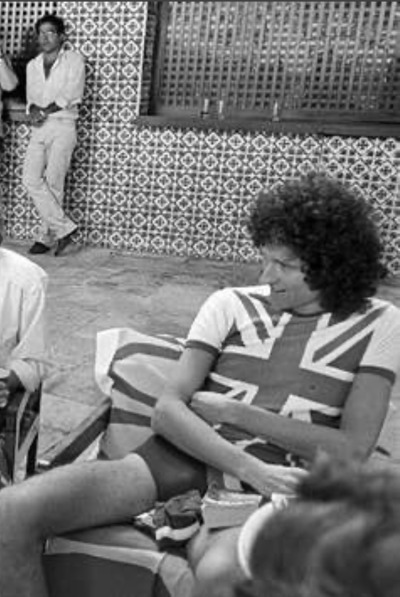
#queen#brian may#freddie mercury#just a bit of fun really they are probably completely different shorts#but you will enjoy analysing#and imagining the possibilities#meanwhile roger: only wearing long trousers for the entire decade#heaven forfend anyone glimpse an ankle
14 notes
·
View notes
Text

Celebrating Ingrid Pitt
Ingrid Pitt (born Ingoushka Petrov; 21 November 1937 – 23 November 2010) was a Polish-British actress and writer best known for her work in horror films of the 1970s.
Ingoushka Petrov was born in Warsaw, Poland, one of two daughters of a father of German Jewish descent and a Polish Jewish mother. During World War II, she and her mother were imprisoned in Stutthof concentration camp in Sztutowo, Free City of Danzig (present-day Nowy Dwór Gdański County, Pomeranian Voivodeship, Poland) but escaped. In Berlin, in the 1950s, Ingoushka married an American soldier, Laud Roland Pitt Jr., and moved to California. After her marriage failed she returned to Europe, but after a small role in a film, she took the shortened stage name "Ingrid Pitt", keeping her former husband's surname, and headed to Hollywood, where she worked as a waitress while trying to make a career in films.
In the early 1960s, Pitt was a member of the prestigious Berliner Ensemble, under the guidance of Bertolt Brecht's widow Helene Weigel. In 1965, she made her film debut in Doctor Zhivago, playing a minor role. In 1968, she co-starred in the low-budget science-fiction film The Omegans, and in the same year, played British spy Heidi Schmidt in Where Eagles Dare opposite Richard Burton and Clint Eastwood.
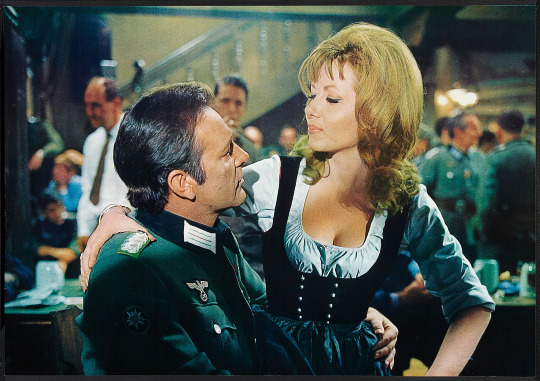
Her work with Hammer Film Productions elevated her to cult figure status. She starred as Carmilla/Mircalla in The Vampire Lovers (1970), based on Joseph Sheridan Le Fanu's novella Carmilla, and played the title role in Countess Dracula (1971), based on the legends about Countess Elizabeth Báthory. Pitt also appeared in the Amicus horror anthology film The House That Dripped Blood (1971) and had a small part in The Wicker Man (1973).

During the 1980s, Pitt returned to mainstream films and television. Her role as Fraulein Baum in the 1981 BBC Playhouse Unity, who is denounced as a Jew by Unity Mitford (Lesley-Anne Down), was uncomfortably close to her real-life experiences. Her popularity with horror film buffs had her in demand for guest appearances at horror conventions and film festivals. Other films in which Pitt has appeared outside the horror genre are: Who Dares Wins (1982) (or The Final Option), Wild Geese II (1985) and Hanna's War (1988). Generally cast as a villainess, her characters often died horribly at the end of the final reel. "Being the anti-hero is great – they are always roles you can get your teeth into."
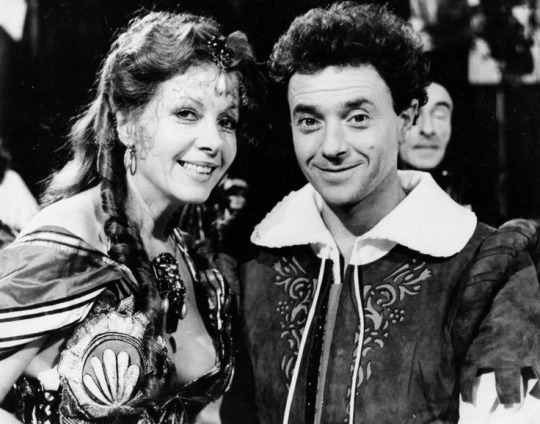
In the 1980s she also reinvented herself as a writer. Her first book, after a number of ill-fated tracts on the plight of Native Americans, was the 1980 novel, Cuckoo Run, a spy story about mistaken identity. "I took it to Cubby Broccoli. It was about a woman called Nina Dalton who is pursued across South America in the mistaken belief that she is a spy. Cubby said it was a female Bond. He was being very kind."
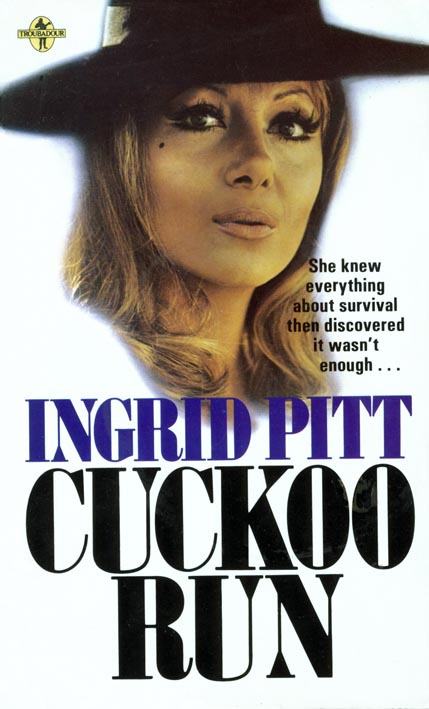
In 1999, her autobiography, Life's a Scream (Heinemann) was published, and she was short-listed for the for her own reading of extracts from the audio book.
The autobiography detailed the harrowing experiences of her early life—in a Nazi concentration camp, her search through Europe in Red Cross refugee camps for her father, and her escape from East Berlin, one step ahead of the Volkspolizei. "I always had a big mouth and used to go on about the political schooling interrupting my quest for thespian glory. I used to think like that. Not good in a police state."

Pitt died in a south London hospital on 23 November 2010, a few days after collapsing, and two days after her 73rd birthday, from congestive heart failure.

Seven months before she died, Pitt finished narration for Ingrid Pitt: Beyond the Forest (2011), an animated short film on her experience in the Holocaust, a project that had been in the works for five years. Character design and storyboards were created by two-time Academy Award-nominated filmmaker Bill Plympton. The film is directed by Kevin Sean Michaels; co-produced and co-written by Jud Newborn, Holocaust expert and author, "Sophie Scholl and the White Rose"; and drawn by 10-year-old animator, Perry Chen.
vimeo
#Ingrid Pitt#The Vampire Lovers#Countess Dracula#Academy Award#Anne Frank#Holocaust#Nazi#Where Eagles Dare#Kevin Sean Michaels#Hammer Films#The Wicker Man#The House That Dripped Blood#concentration camp#Stutthof concentration camp
122 notes
·
View notes
Note
Northeast corridor, what do you know of it either way I will tell you

The Northeast corridor is the longest electrified mainline in the western hemisphere it stretches from Washington DC to Boston the line is 457 miles long (735 kilometers) and is the busiest passenger rail corridor in north America it is Electrified with 3 different voltages 12kV 25Hz AC between DC union station and New Rochelle, 12.5kV 60Hz between New Rochelle and New Haven, and 25kV 60Hz between New haven and Boston South Station
These different sections all have different ownership and where Electrified at different points the New Rochelle to New Haven section is the oldest and was Electrified in 1910 by the New York New Haven & Hartford Railroad originally at 11kV 25Hz AC (however the voltage was boosted and was increased to grid frequency in the 1970s)


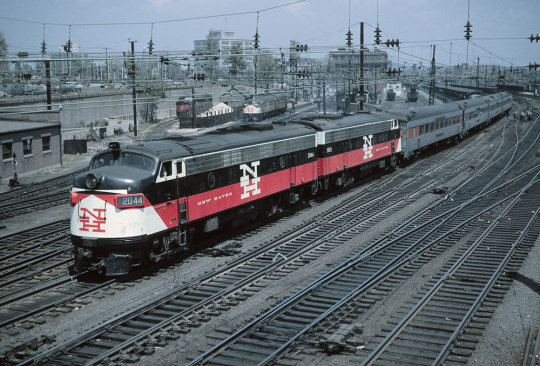

the line between DC union and New Rochelle was all owned by the Pennsylvania Railroad and was Electrified in Pieces starting 1912 with the Philadelphia to Paoli section and that Pennsy owned trackage was fully Electrified by 1934


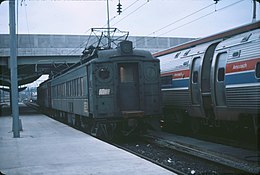


However after the collapse of the Frankenstein Penn Central (the Merger of the Pennsylvania Railroad with the New Haven and New York Central Railroad's) the line was taken over by state run passenger agencies like NJ Transit, and the two new federally owned railroad's Amtrak and Conrail
Conrail ran freight on the NEC using the E33 and E44 electric Locomotives until 1981 and Amtrak took over the Northeast Regional and commuter trains were taken over by SEPTA, NJ Transit, Metro North, The Long Island Railroad, CTrail, MARC, and MBTA
That has been an infodump about The Northeast corridor
i love the northeast corridor so i did know most of this but i appreciate train
12 notes
·
View notes
Photo

Morumbi Stadium, São Paulo, Brazil, March 1981
South America Bites The Dust tour
43 notes
·
View notes
Text
This all you need to know about the Biden regime.
The Western world is on the path of destruction, and it’s okay if it means the Ukraine victory. Demented Joe really believes he’s winning? Oh help us God.
He is such a liar! So, sorry for your luck America but Jowl Biden has to rush into World War III.
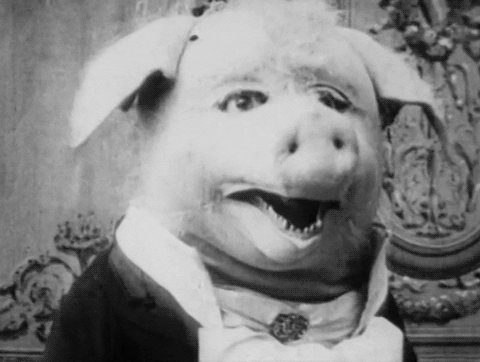
“The war has pushed prices up. [Oil] could go as high as $200 a barrel, some analysts think,” Tankersley said. “How long is it fair to expect American drivers and drivers around the world to pay that premium for this war?”
“As long as it takes,” Biden answered. “Russia cannot, in fact, defeat Ukraine and move beyond Ukraine.
“This is a critical, critical position for the world,” the president went on. “Here we are. Why do we have NATO? I told Putin that, in fact, if we were to move [against Ukraine], we would move to strengthen NATO. We would move to strengthen NATO across the board.”
“The bottom line is, ultimately the reason why gas prices are up is because of Russia. Russia, Russia, Russia,” the president said. “The reason why the food crisis exists is because of Russia.”
LIAR! Liar! Liar! He acts like we can't feed ourselves.
We have the strongest economy in the world. Our inflation rates are lower than other nations in the world,” he said, adding later: “I can understand why the American people are frustrated because of inflation. But inflation is higher in almost every other country.”
The 8.6% annual US inflation rate in May was the highest since 1981 and higher than the Eurozone’s estimated monthly average of 8.1%, Canada’s 7.7%, South Korea’s 5.4% and Japan’s 2.5%.
The UK’s annual inflation rate of 9.1% was higher than the US rate in May, but the US rate exceeded Germany’s 7.9%, France’s 5.8%, and Italy’s 6.9%.
Not one country can afford to do this! I don't care if we combine them either.
All people matter. It's not like Joe is going to fight. It's our younger generation that's going to be there.
The draft will come back. I hope Antifa is ready to fight?
Te cats are out of the bag!
How do you feel about being drafted?
Thank you, Anon
Love, JD 😜💖😥
182 notes
·
View notes
Text
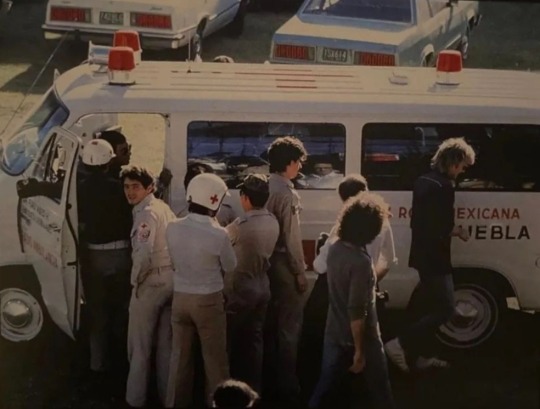
Roger exiting an ambulance that was used to get the band into the stadium unnoticed, Puebla Stadium, Mexico.
📷 Peter Hince
Via fatbottomedrogah
44 notes
·
View notes
Photo
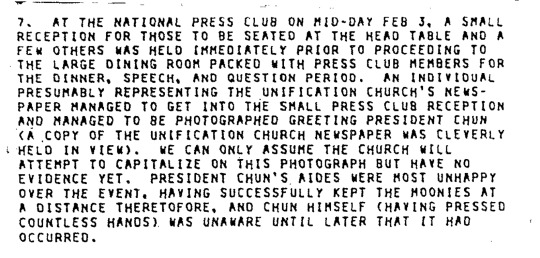
A note from the FBI (2/13/1981) on when Chun Doo-hwan visited the United States:
7. AT THE NATIONAL PRESS CLUB ON MID-DAY FEB 3, A SMALL RECEPTION FOR THOSE TO BE SEATED AT THE HEAD TABLE AND A FEW OTHERS WAS HELD IMMEDIATELY PRIOR TO PROCEEDING TO · THE LARGE DINING ROOM PACKED WITH PRESS CLUB MEMBERS FOR THE DINNER, SPEECH, AND QUESTION PERIOD. AN INDIVIDUAL PRESUMABLY REPRESENTING THE UNIFICATION CHURCH'S NEWSPAPER MANAGED TO GET INTO THE SMALL PRESS CLUB RECEPTION AND MANAGED TO BE PHOTOGRAPHED GREETING PRESIDENT CHUN (A COPY OF THE UNIFICATION CHURCH NEWSPAPER WAS CLEVERLY • HELD IN VIEW). WE CAN ONLY ASSUME THE CHURCH WILL ATTEMPT TO CAPITALIZE ON THIS PHOTOGRAPH BUT HAVE NO EVIDENCE YET. PRESIDENT CHUN'S AIDES WERE MOST UNHAPPY OVER THE EVENT. HAVING SUCCESSFULLY KEPT THE MOONIES AT A DISTANCE THERETOFORE, AND CHUN HIMSELF (HAYING PRESSED COUNTLESS HANDS), WAS UNAWARE UNTIL LATER THAT IT HAD OCCURRED.
#Chun Doo-hwan#chun doo hwan#moonies#unification church#washington times#fbi#korea#republic of korea#unification church in us#unification church in the united states#unification church of the united states of america#south korea#1981#propaganda#the washington times#dictators#dictatorship
0 notes
Text
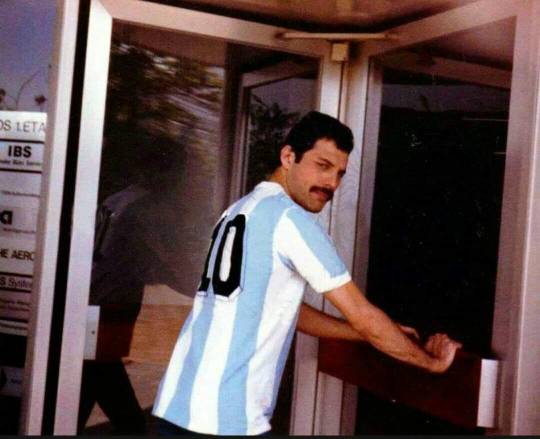
Freddie Mercury at Musicland Studios in Munich, Germany in the early 80s.
👉 In this photo, Freddie wears the shirt that Diego Armando Maradona (1960-2020) gave him when Queen played in Buenos Aires, Argentina, during the 'South America Bites The Dust' tour, in February/March 1981
#munich#germany#early 80s#maradona#s america bites the dust tour#1981#musicland studios#queen band#london#freddie mercury#zanzibar#queen#legend#brian may#freddiebulsara#john deacon#roger taylor#buenosaires1981#buenos aires#argentina
34 notes
·
View notes
Text
Reagan’s Republican Party of 1981 was very different from Herbert Hoover’s of 1933: it had become the refuge of millions of formerly Democratic white conservative voters in the Solid South who resisted the civil rights reforms of the 1960s. Accordingly, behind his cheerful veneer Reagan made sure that he tapped into the fierce resentments of federal authority, dating back to the Civil War and Reconstruction, that fueled that resistance. Before they were done, the Reagan Republicans had absorbed into their coalition an array of aggrieved Americans, including quasi-theocratic white Christian nationalists, the gun-manufacturing lobby, antiabortion militants, and antigay crusaders.
The antigovernment fervor that grips the nation today is the long-term product of the right wing that Reagan called to arms (literally, in the case of the National Rifle Association) forty-odd years ago. It was his attorney general Edwin Meese, in tandem with the newly formed Federalist Society, who started packing the federal judiciary with the conservative judges who have gutted federal protections for voting rights, abortion rights, and more, while inventing, with fake history presented as “originalism,” an individual’s Second Amendment right to own and carry military-grade armaments. It was the Reagan administration that eliminated the FCC’s fairness doctrine, which mandated that broadcasters provide balanced coverage of controversial public issues, paving the way for right-wing talk radio inciters like Rush Limbaugh and G. Gordon Liddy and, on cable TV, Rupert Murdoch’s Fox News to amplify antigovernment paranoia.
The Reagan White House also harbored the former Nixon aide Pat Buchanan as its communications director. Buchanan’s politics were rooted in the 1930s America First isolationism of Charles A. Lindbergh and the diatribes of the right-wing “radio priest” Father Charles Coughlin, with their eccentric fixations on imaginary Jewish internationalist cabals. In the waning days of Reagan’s presidency, Buchanan remarked that “the greatest vacuum in American politics is to the right of Ronald Reagan.” He tried to fill that vacuum himself, nearly defeating President George H.W. Bush in the 1992 New Hampshire primary with his “pitchfork brigades.” His convention speech later that year laid out the culture wars to come. Then he followed up with another bid for the Republican nomination in 1996 and an independent campaign in 2000. All those efforts failed, but their stark themes of isolationism, lost national greatness, immigrant invasion, and racial fear provided a template for Donald Trump’s MAGA campaign a quarter-century later. “American carnage” was the favored far-right image at least two decades before Trump.
31 notes
·
View notes
Text

22 March 1981, Queen flew back from South America to the UK.
Freddie travelled on Concorde.
Queen would take a few months off, during which they'd record Under Pressure with David Bowie. Roger Taylor also recorded his first solo album, called "Fun In Space."
The Gluttons for Punishment tour (second leg of South American tour) would start on
25 September 1981 in Caracas, Venezuela
This beautiful picture was taken by Neal Preston in South America, 1981
#freddie mercury#queen band#brian may#j’adore#roger taylor#jhon deacon#musique#music#original character#queen
12 notes
·
View notes